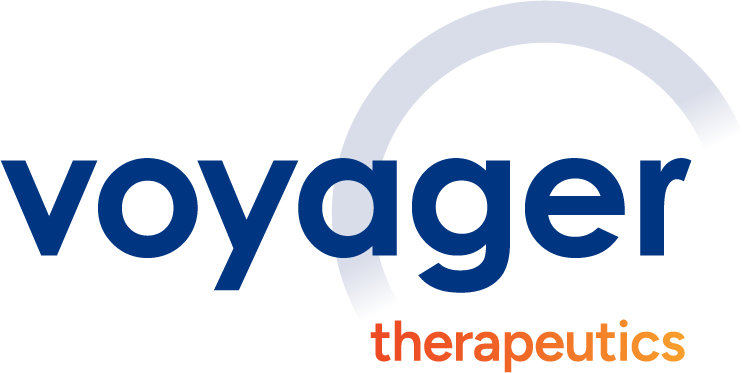Release Details
Voyager Therapeutics Presents New Data Demonstrating Novel Candidate Therapeutic Antibodies Reduced Tau Pathology in Multiple Preclinical Models
Novel passive antibodies bind to paired helical filamentous tau and inhibit propagation of pathological tau
Vectorized antibody demonstrates durable CNS expression more than six months post-dose
Research presented at the Alzheimer’s
Tauopathies such as Alzheimer’s disease, progressive supranuclear palsy, and frontotemporal dementia are characterized by the progressive accumulation and/or propagation of neurofibrillary tangles associated with tau hyperphosphorylation in the brains of patients, leading to neuronal and synaptic loss, brain atrophy, and inflammation. Although current therapies are limited to symptom management and have a modest impact1, investigational therapeutics designed to disrupt the propagation of tau pathology may hold promise in the treatment of tauopathies.
“The Voyager team has maintained a long-standing focus on the development of novel approaches to disrupt the progression of tau pathology believed to be central to multiple neurodegenerative diseases,” said
Passive Antibody Research Highlights:
- 113 anti-tau antibodies were characterized based on specified biochemical and biophysical properties, including functional inhibition of filamentous tau seeding in vitro and high affinity and specificity for pathological forms of tau, and antibodies that met the desired target profile were selected for in vivo efficacy screening.
- Four novel antibodies targeting epitopes of the mid- and C-terminus tau domains were selected.
- Selected antibodies were demonstrated to block the seeding/propagation of filamentous tau in a P301S seeding-propagation tauopathy mouse model and demonstrated substantial reduction of induced tau pathology.
Vectorized Antibody Research Highlights:
- Vectorized antibody expression was detected in the hippocampus, cortex, and cerebrospinal fluid of mice as soon as two days after administration with sustained durability of expression more than six months post-dose.
- The vectorized antibody was observed to be well tolerated at all assessed doses, with robust efficacy observed in all P301S hippocampal seeding/propagation and P301S intrinsic mouse models of tauopathy.
These results build upon previous findings demonstrating distribution and expression of vectorized anti-tau antibodies in the mouse brain using a blood-brain barrier penetrant capsid administered intravenously.
Full results of both posters are available on the Investor page of the Voyager website.
12022 Alzheimer’s Disease Facts and Figures
About
voyagertherapeutics.com LinkedIn Twitter
Forward-Looking Statements
This press release contains forward-looking statements for the purposes of the safe harbor provisions under The Private Securities Litigation Reform Act of 1995 and other federal securities laws. The use of words such as “may,” “might,” “will,” “would,” “should,” “expect,” “plan,” “anticipate,” “believe,” “estimate,” “undoubtedly,” “project,” “intend,” “future,” “potential,” or “continue,” and other similar expressions are intended to identify forward-looking statements. For example, all statements Voyager makes regarding preclinical data for its antibody programs including the presentation of preclinical data at the 2022 Alzheimer’s
All forward-looking statements are based on estimates and assumptions by Voyager’s management that, although Voyager believes such forward-looking statements to be reasonable, are inherently uncertain. All forward-looking statements are subject to risks and uncertainties that may cause actual results to differ materially from those that Voyager expected. Such risks and uncertainties include, among others, the severity and length of the COVID-19 health crisis; the continued development of Voyager’s technology platforms, including Voyager’s TRACER platform and its antibody [screening] technology; the ability to initiate and conduct of preclinical studies in pre-clinical animal models; the ability to attract and retain talented contractors and employees; the ability to create and protect intellectual property; and the sufficiency of cash resources.
These statements are also subject to a number of material risks and uncertainties that are described in Voyager’s most recent Annual Report on Form 10-K filed with the Securities and Exchange Commission, as updated by its subsequent filings with the Securities and Exchange Commission. All information in the press release is as of the date of this press release, and any forward-looking statement speaks only as of the date on which it was made. Voyager undertakes no obligation to publicly update or revise this information or any forward-looking statement, whether as a result of new information, future events or otherwise, except as required by law.

Contacts Investors Investors@voyagertherapeutics.comAndrew Funderburk afunderburk@kendallir.com MediaScott Santiamo ssantiamo@vygr.comPeg Rusconi prusconi@vergescientific.com
Source: Voyager Therapeutics, Inc.

